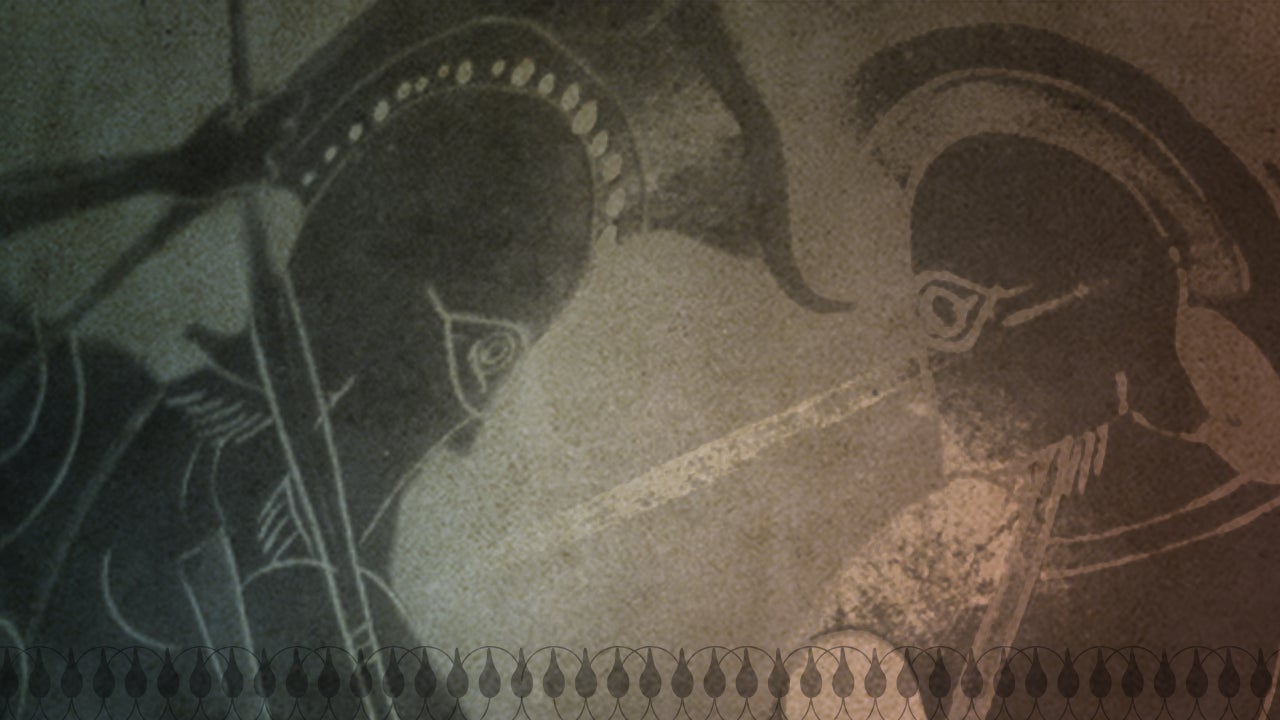
History
Athens and Sparta
9 lessons
7h total length
Create Your Account to Get Instant Access to “Athens and Sparta”
Already have an account?
Examine the History and Legacy of the Ancient Greeks
Lessons in this course

24:45
lesson 1
Why Study the Classics?
The histories of Athens and Sparta—the most dominant cities of classical Greece—are of vital importance to understanding the story of Western Civilization. In Athens, great thinkers such as Plato examined universal philosophical questions. In Sparta, the martial virtues, including the virtue of courage, were mastered. A careful study of these two cities reveals timeless lessons about human nature and human conflict.

37:19
lesson 2
Life and Government in Sparta
Geographically isolated by mountain ranges and the sea, Sparta was able to become one of the two most dominant ancient Greek cities, along with Athens. Spartan government was stable, which was made possible by a system of checks and balances. Sparta fostered a way of life that demanded total dedication to the political community. These factors were essential to Sparta’s extraordinary military success.

34:44
lesson 3
Life and Government in Athens
In the fifth century B.C., Athens, the leading city of ancient Greece, experienced a golden age in the areas of literature, philosophy, politics, and art, among others. To a large degree, these accomplishments were made possible by a government that was based on the principle of demokratia, or rule by the people. Athenian direct democracy produced great achievements, but also often led to great injustices, as in the case of the philosopher Socrates.

40:27
lesson 4
Sparta and the Persian War
The first major challenge to the Spartan way of life occurred in approximately 546 B.C., when Persia, the largest empire at the time, set its sights on Greece. In a long war that led to the eventual defeat of Persia, Sparta was a decisive contributor in two major areas: leadership of the Greek resistance and military prowess, particularly at the decisive Battle of Plataea.

33:59
lesson 5
Athens and the Persian War
The Persian War was a conflict between two radically different civilizations. The Athenian democracy, in conjunction with several other neighboring Greek cities, was able to repel the invading Persians for two main reasons. The first was its superior naval prowess. Second and more fundamental was the statesmanship of Themistocles, who rallied the Greeks in defense of the Western ideal of freedom and against the tyrannical Persian Empire.

43:17
lesson 6
Sparta and the Peloponnesian War
The Greek victories against the Persians at Salamis and Plataea changed the geopolitical outlook for the small but powerful cities of Sparta and Athens. Preoccupied with ruling over a large section of the Peloponnese, Sparta stood aside reluctantly while the Athenians founded the Delian League and continued the war at sea against the Persians. As the Persian threat gradually dissipated, Athens and Sparta became enemies and fought one another in the Peloponnesian War.

35:42
lesson 7
Athens and the Peloponnesian War
The Peloponnesian War (431–404 B.C.) between Athens and Sparta was a war unparalleled in Greek history for its length and intensity. Wars in ancient Greece were typically short and fought to settle border disputes. Even the battles of the Persian War, while grand in scale, were only episodic. By the end of the Peloponnesian War, Sparta and its allies were victorious, and the Athenian Golden Age came to an end.

37:31
lesson 8
Sparta and Athens - Conclusions
The Spartan regime was distinguished by its extreme discipline, which was fostered by a culture of shame and by the society’s extreme regimentation. However, Spartan rule abroad—in the absence of these restraints—typically resulted in corruption and tyranny. Following its victory in the Peloponnesian War, Sparta’s attempt to establish and rule an empire led to its eventual demise.

29:56
lesson 9
Athens and Sparta - Conclusions
Following the defeat of the Athenian Empire by Sparta and its allies in the Peloponnesian War, Athens was ruled by tyrants. Although democracy was eventually restored, the war had weakened the Athenians’ attachment to freedom. This made them vulnerable to the kind of autocratic government that was eventually imposed on them by Philip of Macedon and Alexander the Great.
Enroll in "Athens and Sparta" by clicking the button below.
What Current Students Are Saying
Takes the student through the full context of the course subject matter. Wonderful insight into how we strayed and its consequences and offers a solution.
Create your FREE account today!
All you need to access our courses and start learning today is your email address.